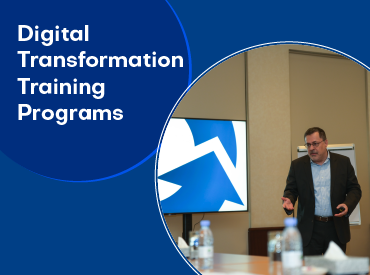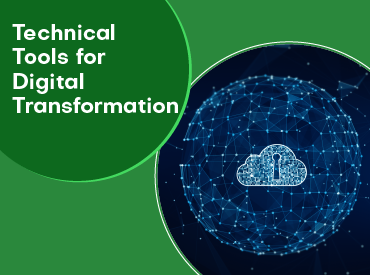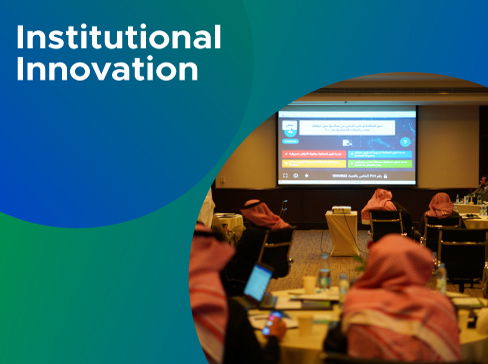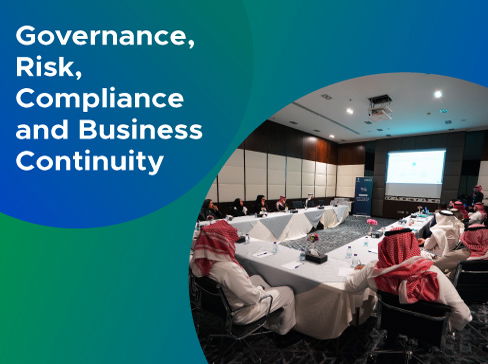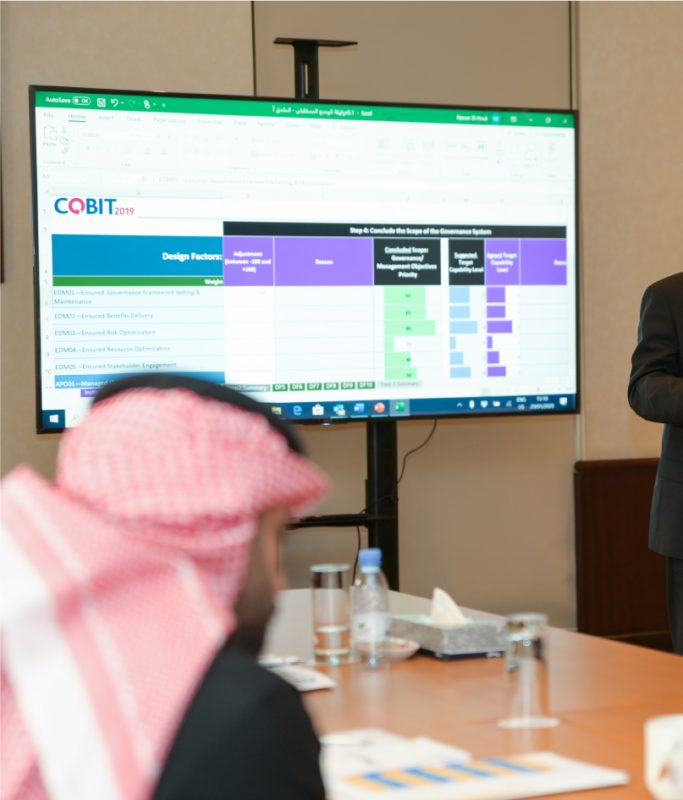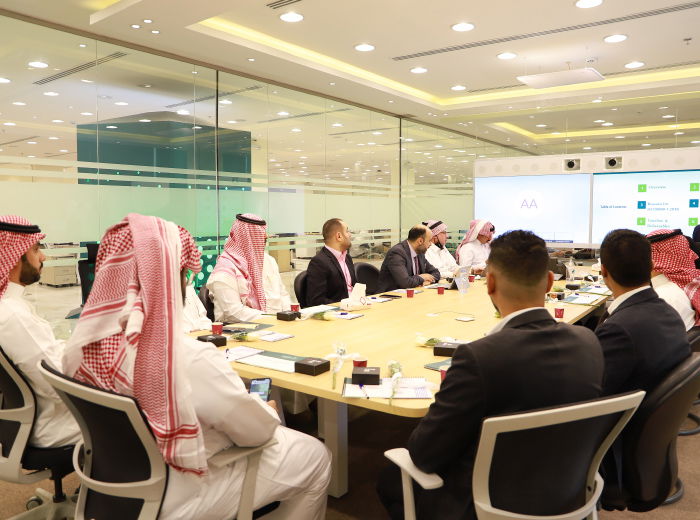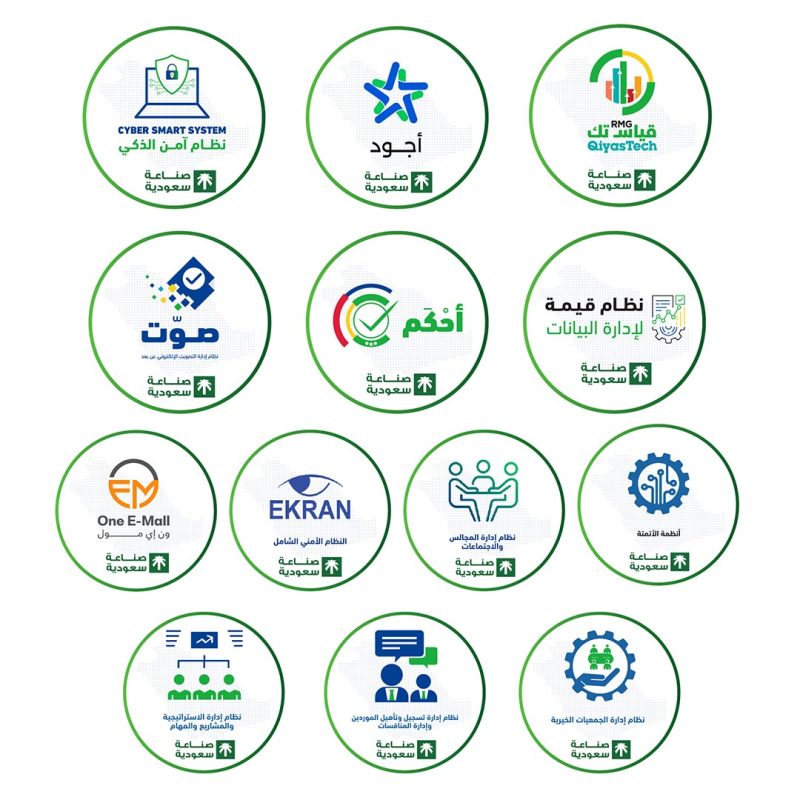Blog Body
Explore the responsibilities of Saudi Arabia’s National Cybersecurity Authority and its role in protecting digital infrastructure and personal data. Discover how RMG (Renad Al Majd) contributes to strengthening your cybersecurity posture.
In an era defined by rapid digital transformation and increasing reliance on technology in daily life and business, cybersecurity has become an absolute necessity rather than a mere option. Cyberattacks have grown more complex and sophisticated, threatening national stability, economies, and individual privacy. At the heart of this evolving landscape, the Kingdom of Saudi Arabia recognizes the critical importance of securing its cyberspace as a foundational pillar of its ambitious Vision 2030.
It is within this context that the National Cybersecurity Authority (NCA) was established — a supreme reference and protective shield for the Kingdom in the digital realm. This article explores the vital responsibilities of the NCA, key cybersecurity concepts, and the role of specialized companies like Renad Al Majd Company (RMG).

Establishment and Importance of the National Cybersecurity Authority
The NCA was established by Royal Decree, reflecting the leadership’s commitment to creating a specialized and independent entity dedicated to regulating and securing the Kingdom’s cyberspace. Its core objective is to enhance national cybersecurity, protect critical interests, ensure national security, and safeguard sensitive infrastructure, government services, and economic activities from escalating cyber threats. The authority serves as a regulator, legislator, and overseer, playing a pivotal role in building a robust and integrated national cybersecurity ecosystem.
Core Responsibilities of the National Cybersecurity Authority
The NCA’s responsibilities span strategic, regulatory, and operational domains, all geared toward building a safe and trustworthy Saudi cyberspace that enables sustainable growth. Key responsibilities include:
- Developing Policies and Regulatory Frameworks:
Creating and approving national cybersecurity policies, frameworks, standards, controls, and guidelines for implementation across both public and private sectors, and ensuring compliance. - Securing Networks and Systems:
Protecting national IT networks, operational technologies, and their components — including hardware, software, services, and stored data. - Enhancing Entity Cybersecurity Capabilities:
Supporting government and private entities in building and strengthening their cybersecurity defenses, and providing necessary assistance when needed. - Cyber Risk Management:
Developing and implementing effective mechanisms for national cyber risk management, identifying potential threats, assessing risks, and planning response strategies. - Threat Monitoring and Incident Response:
Operating advanced Cybersecurity Operations Centers (CSOCs) to detect attacks and threats 24/7, developing early warning mechanisms, and coordinating swift, effective incident response and recovery. - Capacity Building and Awareness:
Training national cybersecurity professionals and launching initiatives to raise public awareness about cyber risks and safe practices. - Encouraging Innovation and Industry Growth:
Promoting the cybersecurity sector’s growth and encouraging investment and innovation in cybersecurity technologies and solutions. - International Cooperation:
Establishing and strengthening global partnerships to share knowledge, expertise, and combat cross-border cyber threats.
Safeguarding Personal Data: A Key Mandate of the NCA
Protecting personal data and privacy is a top priority in the digital age. The NCA is tasked with ensuring the effective protection of personal data through:
- Issuing Controls and Standards:
The NCA develops essential cybersecurity controls (ECC) and Cybersecurity Controls for Sensitive Systems (CSCC), among others, which include strict requirements for secure data handling and storage. - Ensuring Compliance:
The authority monitors how entities — especially those managing large volumes of personal data — comply with these standards and regulations. - Promoting a Culture of Privacy:
Raising awareness among individuals and organizations about the importance of protecting personal data and adopting secure practices.
Data privacy is not merely a legal obligation — it’s fundamental to building trust in the digital economy and encouraging safe use of digital services.
Key Cybersecurity Concepts Explained
To better understand the NCA’s mission and efforts, it’s important to clarify some core cybersecurity concepts:
- What is the difference between Information Security and Cybersecurity?
Although often used interchangeably, these terms have subtle differences. Information Security is a broader concept encompassing the protection of all forms of information (digital, physical, verbal) from unauthorized access, disclosure, modification, or destruction. It focuses on three core principles: Confidentiality, Integrity, and Availability (CIA) — regardless of the data format or storage location.
Cybersecurity, on the other hand, is a subset of information security that focuses specifically on safeguarding digital assets (networks, systems, devices, data) from threats that originate in cyberspace. - Is there a common abbreviation for Cybersecurity?
Unlike “IT” (Information Technology), “Cybersecurity” does not have a universally recognized abbreviation. However, in Saudi Arabia, the National Cybersecurity Authority is commonly abbreviated as NCA. The term itself is usually written and pronounced in full. - Why should we learn about Cybersecurity?
Understanding and specializing in cybersecurity is becoming essential for several reasons:- Personal Protection: To safeguard our data and digital identities from theft, fraud, and online blackmail.
- Organizational Security: To protect corporate assets, customer data, and reputations from costly breaches and disruptions.
- Career Opportunities: Cybersecurity is among the fastest-growing fields, with high demand for skilled professionals.
- National Security: To defend critical national infrastructure (energy, water, communications, finance) from attacks that could destabilize society.
- Secure Innovation: To ensure new technologies (e.g., AI, IoT) are developed and deployed responsibly and securely.
The Private Sector’s Role: RMG as a Cybersecurity Partner
The responsibility of securing cyberspace does not rest solely with the NCA — it requires collaborative efforts across both public and private sectors. Specialized cybersecurity companies play a vital role in delivering expert services and cutting-edge solutions that help organizations enhance their digital defenses and comply with the NCA’s standards.
Renad Al Majd Company (RMG) stands out as a leading Saudi firm providing comprehensive cybersecurity services and solutions tailored to the needs of various sectors. RMG’s offerings include:
- Penetration Testing & Vulnerability Assessment:
Identifying system and network vulnerabilities before attackers can exploit them. - Compliance Consulting:
Assisting organizations in understanding and implementing the NCA’s cybersecurity controls and other international standards. - Managed Security Services (MSSP):
Delivering continuous security monitoring, incident management, and advanced protection for networks and endpoints. - Data Protection and Privacy Solutions:
Implementing technologies and policies to ensure the confidentiality and integrity of sensitive data. - Security Training & Awareness:
Equipping employees with knowledge of current threats and best practices for safe digital behavior. - Incident Response Services:
Providing immediate support to contain, mitigate, and recover from cybersecurity incidents.
With its expertise and innovative solutions, RMG empowers organizations to face evolving cyber threats, strengthen their security posture, and contribute to achieving national cybersecurity goals under the guidance of the NCA.
Secure Your Digital Future: Leverage RMG’s Cybersecurity Expertise
In conclusion, the National Cybersecurity Authority plays a pivotal role in shaping a secure and thriving digital future for Saudi Arabia. Through its wide-ranging responsibilities — from policy development and infrastructure protection to capability building and personal data safeguarding — the NCA works tirelessly to combat evolving threats.
Still, cybersecurity is a shared responsibility. Every organization, whether large or small, must take proactive steps to protect its digital assets.
Are you ready to strengthen your cybersecurity defenses and comply with NCA’s standards?
RMG offers the expertise and solutions you need. Our team of experts is ready to assess your security posture, identify risks, and implement tailored solutions to protect you from cyber threats.
Don’t wait until it’s too late.
Contact RMG today and ensure the safety and resilience of your digital operations through the form below.






